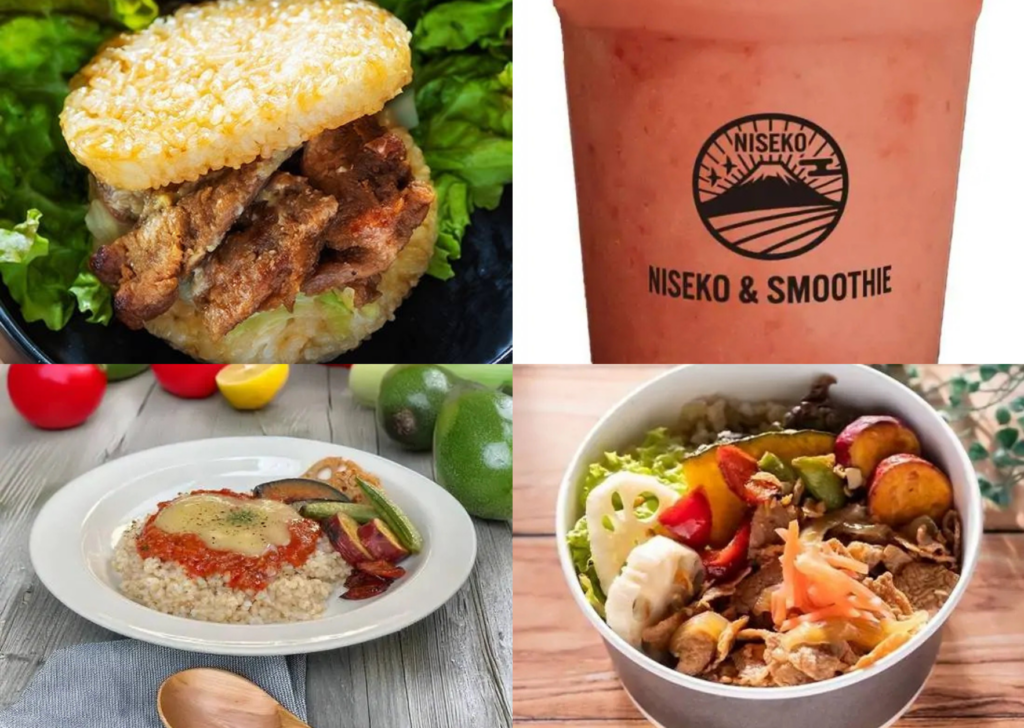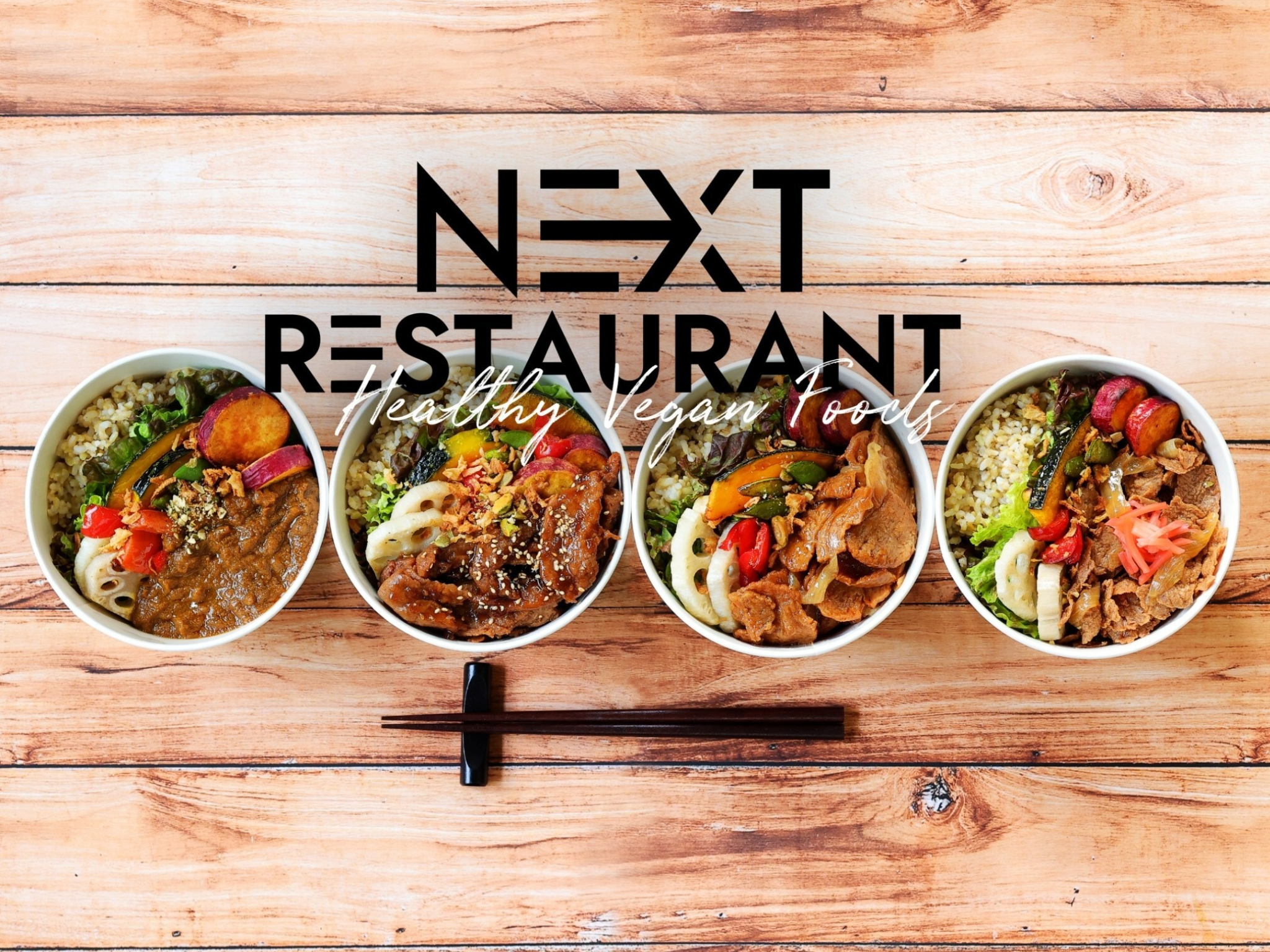US Hamburger Chain Takes On Asia’s Plant Protein Appetite with All-Vegan Restaurant Brand in Japan
4 Mins Read
Connecticut-based Wayback Burgers’ franchisee in Asia has opened a 100% plant-based chain called Next Restaurant in Japan, with major expansion plans in sight.
Fast-casual chain Wayback Burgers is going all-in on Asia’s hunger for plant proteins, establishing an all-vegan restaurant concept championing plant-based meat in Japan.
Wayback Burgers Asia, the Japanese master franchisee of the US hamburger chain, has opened Next Restaurant in Tokyo, which it describes as a first-of-its-kind concept in the city designed to overcome the ever-changing barriers of the foodservice sector.
The chain operates mainly as a takeaway and delivery site, with only limited seating for dine-in options. The restaurant operates a shared kitchen to prepare dishes from different restaurants, with visitors able to choose items from multiple menus at the same time.
Next Restaurant’s model to expand globally

Wayback Burgers is a 33-year-old chain with over 170 locations in more than 20 countries using the franchise model. The chain has an extensive menu of beef burgers, chicken patties, shakes, and more, it does have a couple of meat-free options, using Impossible Foods and Gardenburger’s analogues.
The company opened its first site in Japan in 2022, but has now expanded its operations with the 100% plant-based concept of the Next Restaurant. “The traditional restaurants are now facing high procurement costs, labour shortages [and] general inflation, and consumers [continue to demand] high-quality, healthy foods while seeking better value for money,” said Wayback Burgers Asia CEO Koichi Ishizuka.
“Next Restaurant’s multi-brand restaurant model shares the same kitchen for better food preparation efficiency, and the pick-up and delivery concept allows us to operate within a small location.”
At Next Restaurant, customers can order from a range of vegan bento boxes, with options like foie gras kalbi, short ribs, pork and ginger, and a beef bowl. The eatery also keeps to its parent company’s hamburger legacy, with menu items like short rib or pork-ginger rice hamburgers, as well as a minced meat cutlet.
Moreover, Next Restaurant offers gluten-free pasta and doria (a type of rice gratin) tossed in tomato, bolognese or carbonara sauce, alongside entire menus for cheesesteaks and pizza (with flavours like tuna mayo, bulgogi, curry, and Margherita).
Wayback Burgers Asia has further created a vegan and gluten-free smoothie brand called Niseko & Smoothie, which uses fresh produce from farms in the town of Niseko, Hokkaido.
“It is franchisable and expandable to accommodate various existing restaurants’ menus,” Ishizuka said of the business model. “We are setting a new post-Covid restaurant business mode from Tokyo and expanding internationally.”
Japan’s growing appetite for alternative protein

As Ishizuka alluded to, Wayback Burgers Asia is now exploring domestic and international franchise partnerships to take Next Restaurant global. Its second franchised eatery is set to open this fall too, in Kumamoto on Japan’s Kyushu island.
It comes amid a time of growing need for plant-based and other alternative proteins in the country. Japan has a net-zero target of 2050, with a shorter-term goal of cutting emissions by 46% by the end of the decade. But its current policies have been deemed “insufficient” by the Climate Action Tracker. And last year, research suggested that 45% of the country’s protein supply needs to come from alternative sources by 2060 if it’s to decarbonise.
A 2021 poll found that 53% of its population primarily viewed plant-based meat as having “low calorie and fat values compared to regular meat”, and just over a third (37%) viewed these products as “sustainable”. Around the same time, another survey found that less than 20% of consumers in Japan were aware of plant-based foods.
But things are changing now. This May, one study showed that three in four Japanese citizens had heard about or seen plant-based meat, with 21% displaying a broad understanding of these products. It also found that one in five respondents had tried meat analogues.
Showcasing long-term trends, a survey last year suggested that the number of vegans and vegetarians had gone from 4.8% in 2017 to 6.5% in 2023. Likewise, while only 16% of Japanese consumers were consciously lowering their meat consumption in 2017, this swelled to 26% last year.
These habits are part of the reason why alternative protein think tank the Good Food Institute opened its latest office in Japan earlier this month, noting the country’s ability to cater to Asia’s “skyrocketing meat demand in a more secure and sustainable way”.
Kimiko Hong-Mitsui, interim director of the office, told Green Queen: “Just as Japan developed and exported the cutting-edge technologies that brought solar power and other renewables to the world, we now have an opportunity to pioneer the next generation of alternative proteins – the food equivalents of clean energy.”



